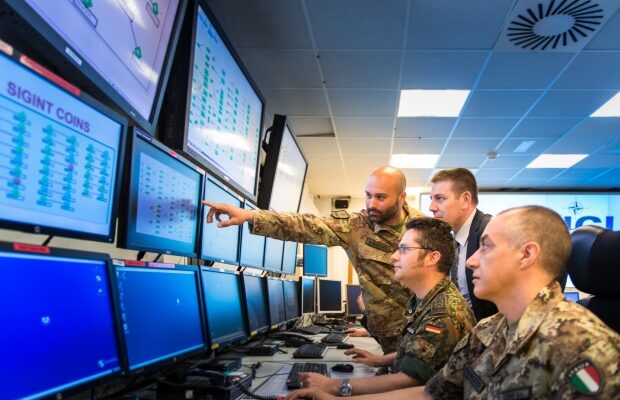Many countries today face some of the greatest challenges they have ever known. In a context of growing geopolitical tensions and emerging conflicts, security services continue to face one of their most sophisticated adversaries: the hacker. Cyber adversaries have never had so many resources and technical capabilities. Their attacks are more sophisticated and their impact has never been greater. They also do not discriminate in their attacks, sparing neither private companies nor government agencies.
As threats continue to grow, the industry lacks the personnel needed to meet the cybersecurity challenge. With a significant number of unfilled cybersecurity positions, there is a need to rapidly augment the cybersecurity workforce with individuals who have the skills and capabilities needed to address these threats.
Fortunately, there is a capable group ready to take on the challenge among the veteran community. With their unique skills, discipline and unmatched experience, veterans are uniquely suited to help fill the skills gap and respond to the growing cyber threats we face. Additionally, veterans will find a second career in information technology and cybersecurity upon completion of their service.
“Non-technical” skills…
Veterans leave the service with a wide range of skills that can be used outside of a military setting. These include both what are often called “soft skills”, i.e. those that are useful in a number of contexts, and technical skills well suited to cybersecurity and to information technology:
Adaptability: Military service requires not only adaptation to constantly changing environments, but also instant critical decision-making. In the field of computing, technology is constantly evolving. The ability to adapt and learn quickly is a skill that allows veterans not only to be very useful in the field of information technology, but also to be very successful, because the technologies and situations in where we find ourselves are evolving rapidly.
Problem solving: one of the greatest lessons the military imparts is the ability to problem solve. This is by far one of the most crucial skills we can learn. Whether it’s finding new ways to approach a problem or developing a solution under the pressure of high stakes, the military is often faced with complex challenges. In the field of information technology, technical problems require critical and creative thinking, and it is often necessary to use imagination to solve new challenges.
Strong work ethic and discipline: strong work ethic and discipline are essential to building and maintaining a successful military. This is one of the essential skills that veterans retain when they leave. It is also one of the most important aspects of succeeding in cybersecurity. Meeting deadlines, paying attention to details and working diligently are remarkable qualities of veterans.
…and techniques
Technical knowledge : In addition to these soft skills that enable them to navigate the workplace, veterans also possess a number of technical skills that are extremely valuable in the information technology field. They may already have some of the basic technical skills needed to succeed in information technology. The military has a strong information technology network and it is possible to gain experience in technology, communications and information security while serving.
Security clearances: some veterans may have obtained security clearances. They are therefore extremely valuable for companies that deal with sensitive information. Additionally, a number of information technology positions within government agencies or contractors often require security clearances. Starting with an authorization is a considerable advantage.
Safety Concern: veterans are focused on security and defense and understand the importance of building a secure system that protects our nation. As the industry increasingly adopts security principles used to manage software and services, including emerging technologies like artificial intelligence (AI), employing a workforce that understands the importance of a strong posture in terms of security becomes crucial.
Enabling Veteran Access to Cybersecurity Positions
As the industry continues to incorporate more Secure by Design principles, personnel who understand the importance of security and defense are the foundation for its deployment. For this to become a reality, public institutions and private companies must step up and create the right pathways to the job market for veterans. Private companies should also offer more workshops and hands-on training, which would allow candidates to learn and help companies fill their vacancies.
Across the world, we need skilled personnel to meet cybersecurity challenges. Veterans are ideal candidates to quickly close the cybersecurity skills gap and create the skilled sector needed to address these threats.
